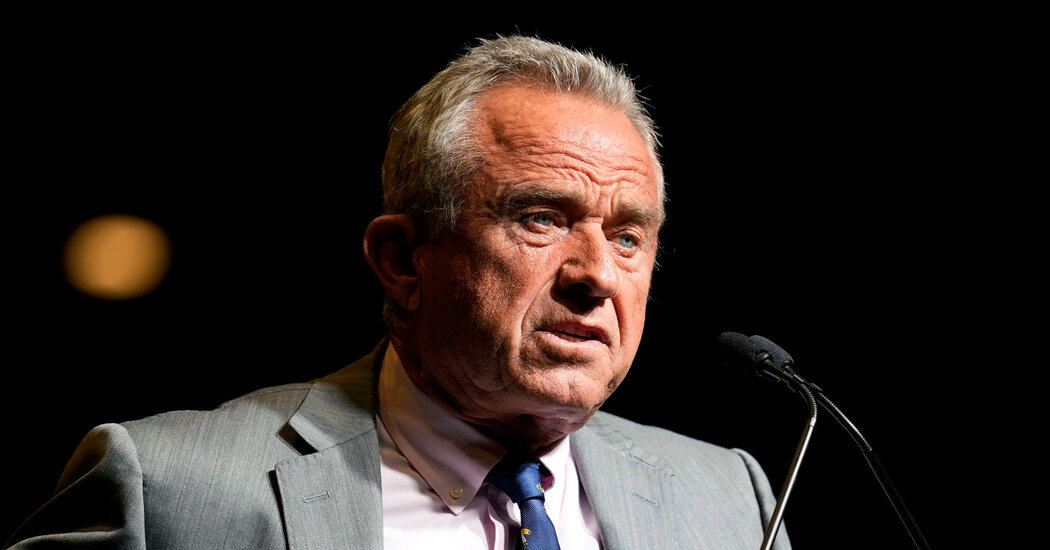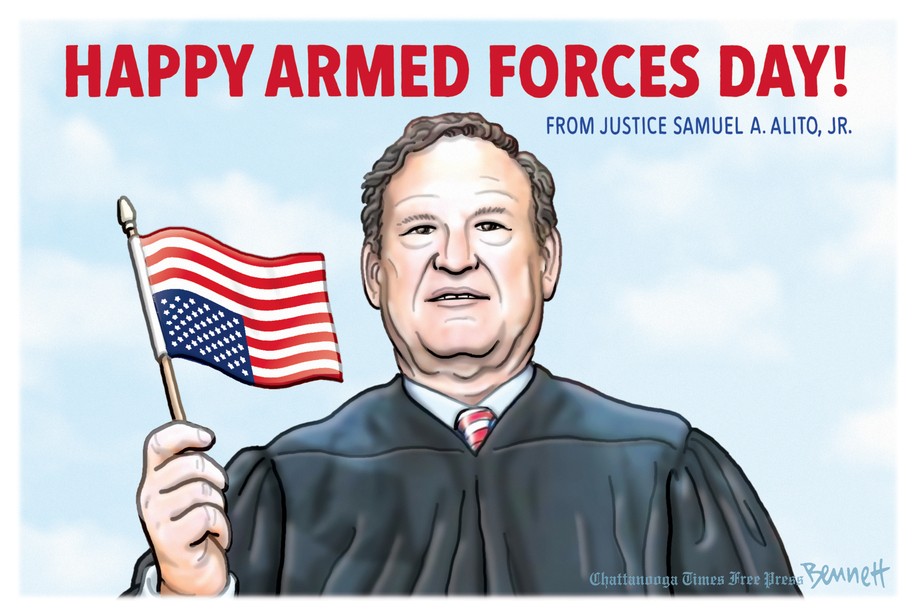When Robert F. Kennedy Jr., the Democrat-turned-independent candidate, announced his run for president, it was reasonable to think he might be a possible spoiler — a candidate who drew voters away from President Biden and could help elect Donald J. Trump.
So far, it’s not so simple.
Across the battleground states in the New York Times/Siena College polls released Monday, Mr. Kennedy actually drew somewhat more support from Mr. Trump than Mr. Biden, with 8 percent of Mr. Trump’s supporters preferring Mr. Kennedy in the five-way race to 7 percent of Mr. Biden’s supporters.
Looking at the minor-party candidates more generally, the results were essentially identical in either the two-way or the five-way race. Mr. Trump led by 6.19 points among registered voters across the six states in the two-way race, compared with a 6.16-point lead when Mr. Kennedy and other minor-party candidates made up a five-way race. Needless to say, this is not a material difference.
There is a twist, however — one that raises the possibility that Mr. Kennedy could ultimately play a bigger role than he does today.
The twist is that Mr. Kennedy draws disproportionately from voters who usually back Democrats but have defected to Mr. Trump.
In fact, Mr. Kennedy actually takes more Biden 2020 voters than Trump ’20 voters, even though Mr. Kennedy draws more Trump ’24 voters than Biden ’24 voters.
He drew 8 percent of Mr. Biden’s 2020 supporters to 6 percent of those who backed Mr. Trump, even though more of his supporters would back Mr. Trump today.
Similarly, Mr. Kennedy drew 7 percent of self-identified Democrats, compared with 4 percent of Republicans.
And he drew 8 percent of those who backed Democratic candidates for U.S. Senate in the four states where we asked about them, compared with 6 percent of those who backed the Republican candidate.
It might seem confusing that Mr. Kennedy is disproportionately strong among the sliver of Trump voters who usually vote Democratic, but it makes a lot of sense. The polls show many disengaged young and nonwhite voters who usually lean Democratic, but have soured so much on Mr. Biden that they backed Mr. Trump in the polls. But it’s not as if they love Mr. Trump. They voted against him last time, after all, and they usually vote Democratic. So it’s easy to see why these voters would prefer Mr. Kennedy to Mr. Trump.
All of this adds up to an unusual takeaway: Mr. Kennedy may be winning over voters whom Mr. Biden may need in order to win, even if those voters have soured on him so much that they wouldn’t vote for him even if Mr. Kennedy weren’t on the ballot. He may not be a spoiler now, but perhaps he could be if Mr. Biden’s standing improved.
How much support does Kennedy really have?
If you’ve been reading the polling about Mr. Kennedy carefully, you’ve seen that his level of support can be all over the place. In some polls, he barely wins any support at all. In others, he’s reached nearly 20 percent or more — including in our last Times/Siena polls of these same states.
What’s the explanation? Today, my colleague Ruth Igielnik reports the findings of an experiment that helps solve the mystery. The short answer: It’s about the wording and order of the questionnaire.
You’ll want to read more about it here, including how one of our own colleagues (who has a generic-sounding name) fared as a hypothetical third-party candidate.


